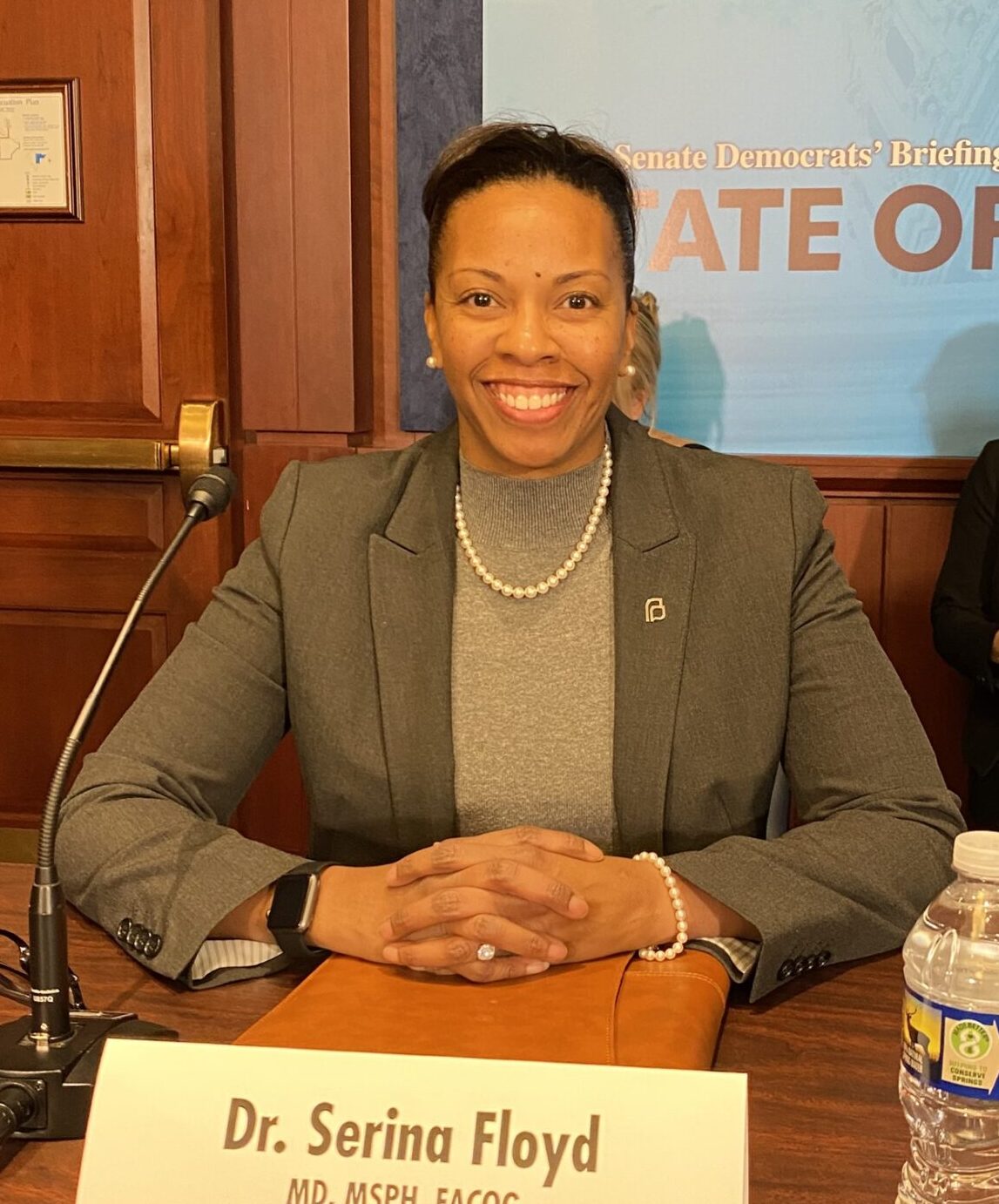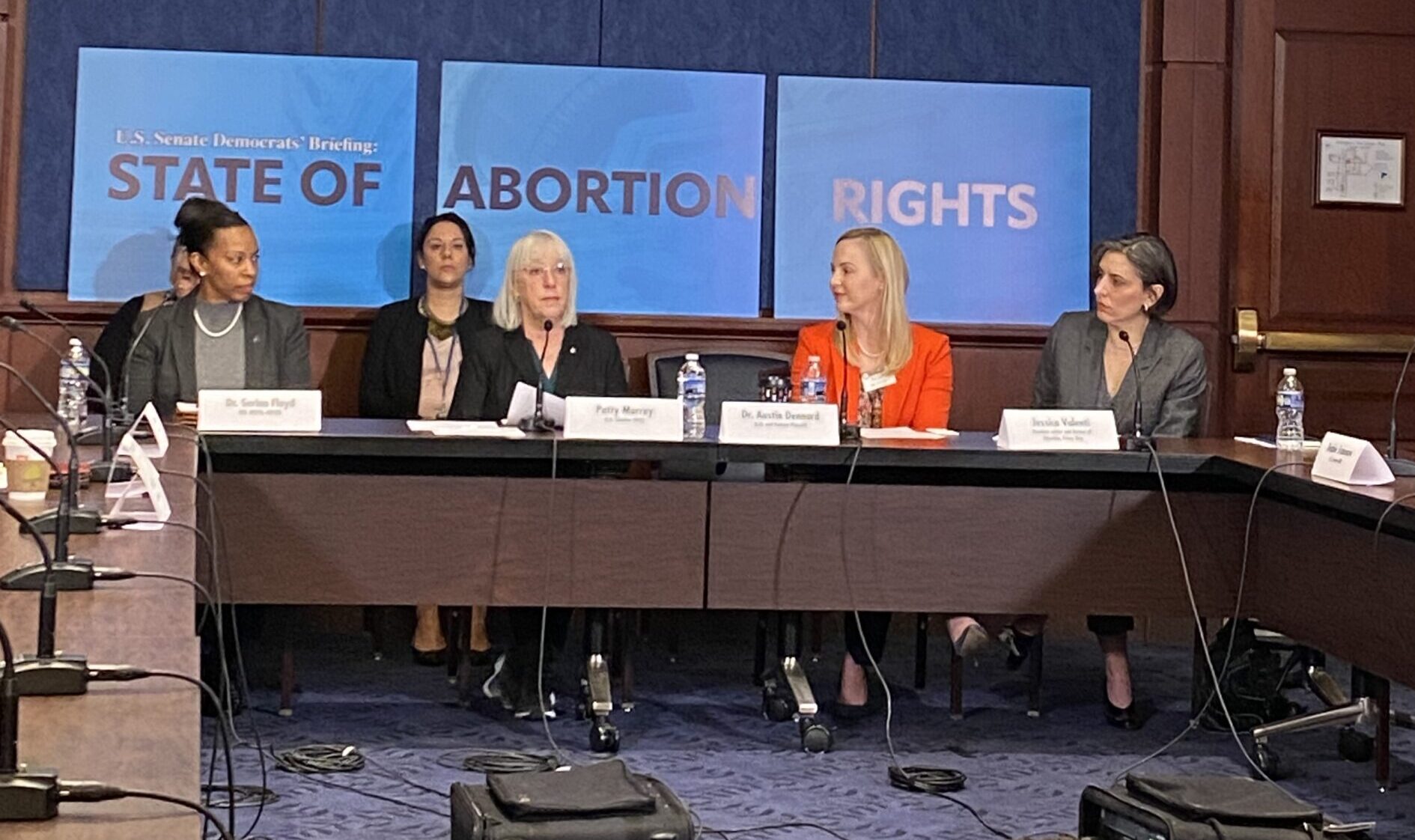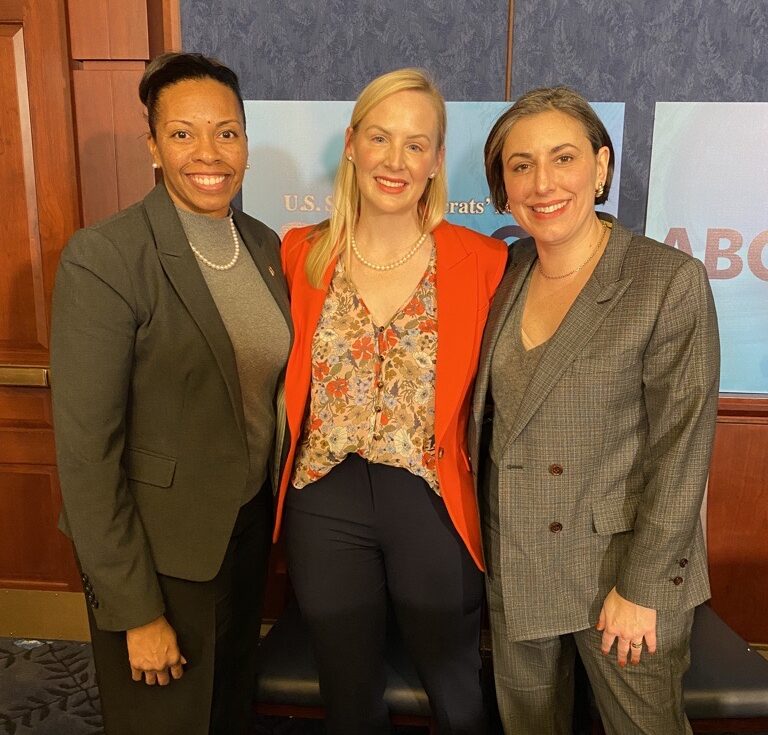51 Years After Roe: Birthing Individuals in the US Have Less Control
Dr. Serina Floyd discusses the ever-changing sociopolitical landscape for abortion access.
Can you fathom that, in 2024, birthing individuals in the US have less control over their bodies than preceding generations? Like???
This was a recurring theme during the January 17 Senate briefing on abortion access in DC. PRH Fellow, ob/gyn, and Chief Medical Officer of Planned Parenthood Metropolitan Washington DC, Dr. Serina Floyd, discussed the ever-changing sociopolitical landscape for abortion access. Alongside Dr. Austin Dennard, an ob/gyn in Texas, and writer Jessica Valenti, these three women leveraged their insights, expertise, and lived experience to illuminate the realities after the overturning of Roe v. Wade.
Watch the Senate Briefing
Abortions are essential, life-saving care
Dr. Floyd urged that “abortions are essential, life-saving care”, emphasizing that abortion access is not a political issue, but an issue of basic humanity. While juxtaposing research findings from the Society of Family Planning with the experiences of her patients, Dr. Floyd told the story of a woman who traveled from North Carolina to Washington, D.C. for care:

“The patient was traveling by bus and after missing her first bus, caught the next one but arrived in DC too late for her appointment. Plans were initiated to see her the following day and an appointment was scheduled. The patient was then asked where she would stay overnight, and her response was that she had just researched on her phone several homeless shelters in the area and had located one 15 minutes away that she would try. This patient had no money, not even for food. All she had was her bus ticket home. This patient’s story is just one of the many I could tell, each and every one disturbing and heartbreaking, and absolutely avoidable.”
Dr. Floyd’s testimony underscores the critical consequences of limiting abortion access and its adverse implications, particularly for marginalized individuals. When confronted with the question of “Who bears the greatest brunt of this restrictive ruling?” Dr. Floyd’s co-panelist Jessica Valenti points to the most vulnerable groups, citing a tragic case in Texas where a woman lost her life due to an abortion care disparity at a religious medical facility that failed to acknowledge the crucial need for abortions.

Even individuals with considerable privilege are grappling with formidable challenges in accessing abortion care, and the existing disparities are exacerbated by factors such as geographical location, race, socioeconomic status, health conditions, and transportation. While there have been legislative efforts to relieve patients of some of these burdens, like the Reproductive Health Travel Fund Act, these efforts only address part of the problem.
When asked “What do we know about the impact of traveling far from home for health care has had on families?” Dr. Floyd responded:
“The impact is severe and significant. We see patients who come from all over and what it takes for some patients to make that trip, some people do not understand that. If you are someone with privilege, resources, and support, you have no idea what it means to use your last to arrange transportation. When you have to coordinate your children, travel, food, and lodging, these are significant burdens. For someone with resources, navigating these resources is insurmountable. The mental and emotional toll is absurd and you are not in a place where you can be supported by your loved ones.”

While having access to abortion is a crucial right, the decision-making process remains inherently challenging for individuals, involving complex considerations and emotions. Abortion access restrictions also have profound societal repercussions. The panelists also discussed how limitations in abortion access contribute to alarming trends within the health care profession. Provider shortages, burnout, clinic closings, and a pervasive fear of legal repercussions hinder adequately training the next generation of health care providers. This climate of fear stifles the open communication of essential information to patients, further complicating the landscape of reproductive health care.
Deeper than the consequences of overturning Roe, Wednesday’s hearing highlights Roe’s insufficiency, exposing its failure to establish robust reproductive rights.
When asked, “What is something you think people do not understand about the status of abortion care?” Dr. Floyd stated that “even though this country is now in an abortion care crisis post-Roe, this country was never where it needed to be before Roe fell…What is not clearly understood by many is that Roe was always on the floor. Not the ceiling.”
As we reflect on the Senate briefing, it becomes evident that the issue of abortion restrictions transcends political divides. It is a matter of personal freedom, democracy, and basic humanity. The urgency to care lies in our collective responsibility to safeguard the rights and choices of individuals, ensuring access to essential reproductive health care. The stories shared during the briefing serve as a reminder that the consequences of these laws are not abstract policy debates but real-life struggles faced by individuals across the nation.
As always, we’re grateful for the time, energy, and expertise of PRH Fellows like Dr. Serina Floyd. Dr. Floyd’s dedication to the communities she cares for is always so evident, and we were all the more proud to call her a member of the PRH community thanks to her incredible reflections at the hearing.

